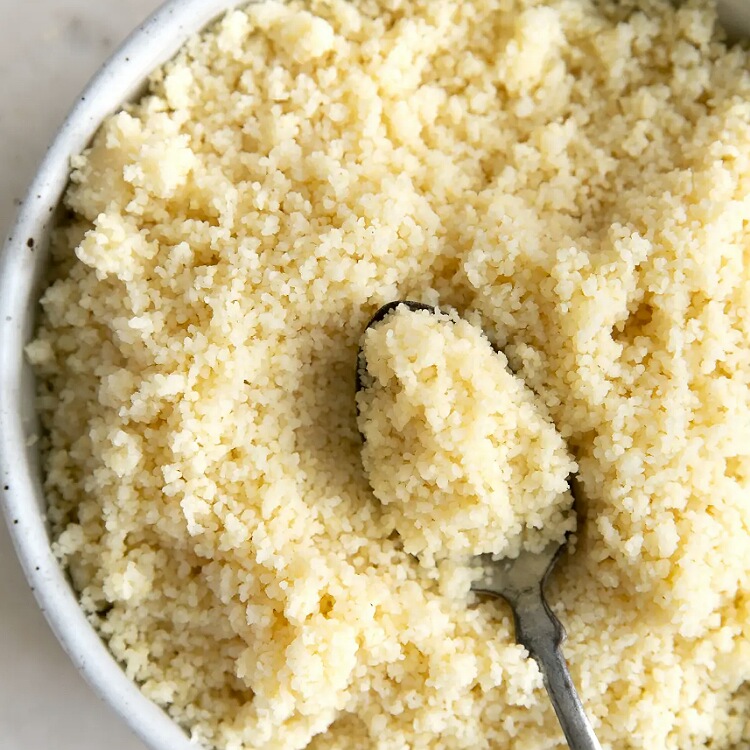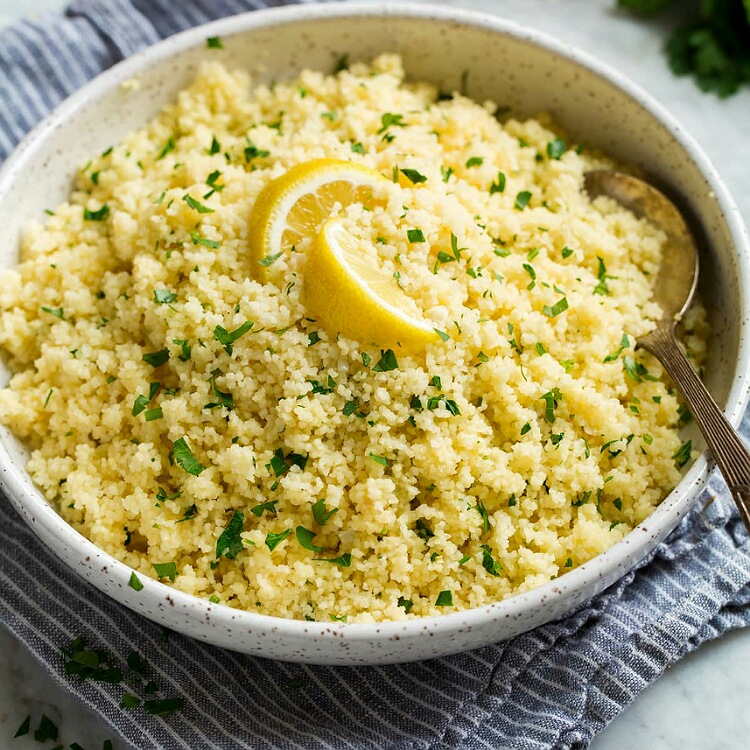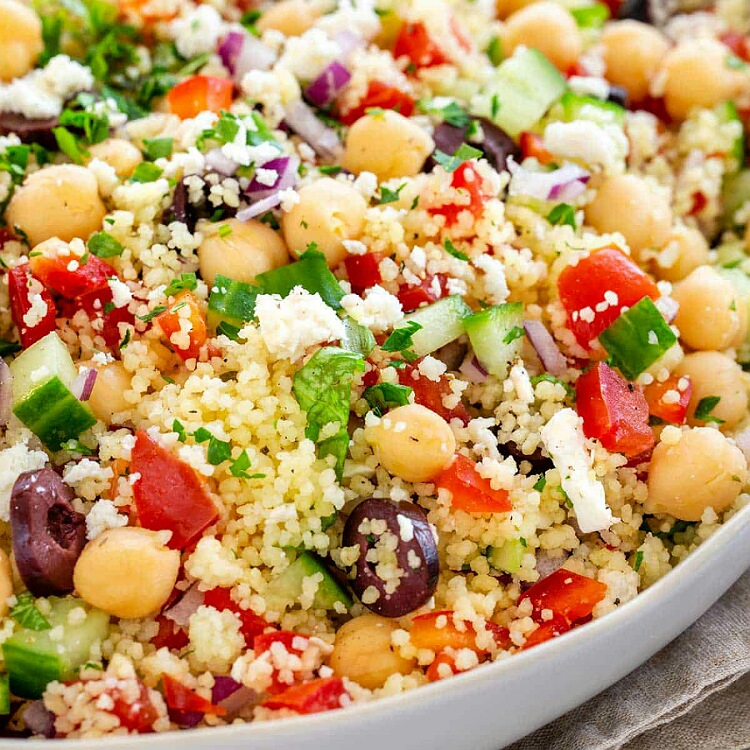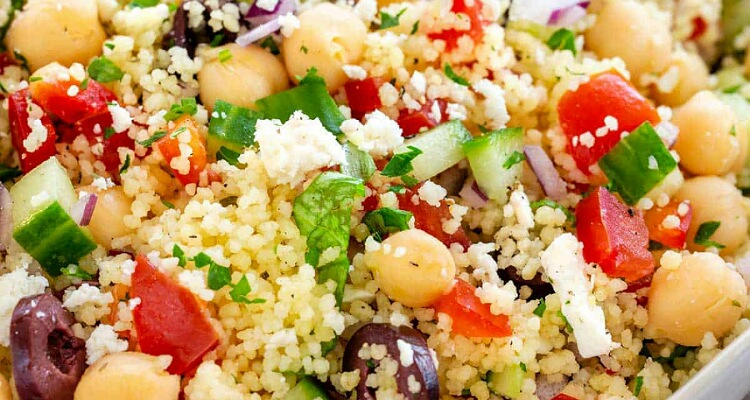Couscous is a term for a type of grain as well as the Maghrebi dish made out of it. It is a grain product made from either semolina (coarsely ground durum wheat) or barley and millet.
It has an obscure history but is now commonly used in North Africa and Europe as well as other countries of the world. What are the health benefits and nutritional qualities of this grain?
Couscous, the grain product: origin and types
Couscous is a type of grain product that is made from coarsely ground durum wheat or barley or millet. But it is not a natural grain but a man-made one.
It was probably the Berbers of Northern Algeria and Morocco during the 11th century that started the trend of making and using couscous. In the 13th and 14-century cookery books of the Arab world, there is a mention of this grain in its recipes.
Later, in the 20th century, this grain was taken to Europe and France. The earlier versions were made from barley or millet or acorn flour.

Couscous is also used to refer to the Maghrebi dish of steamed granules of this grain that has stew spooned on top of it.
This dish is now a favorite in Tunisia, Algeria, Mauritania, Morocco, and Libya. It has the status of intangible cultural heritage status from UNESCO.
Couscous is different from Israeli couscous which is toasted extruded pasta. It is a relatively modern invention of the 1950s.
Pearl couscous is a pea-sized version of Moroccan couscous. It is also called Mograbia, maftoul,(of bulgur wheat), or Lebanese couscous.
Nutritional facts and uses
In 100 grams of couscous, there are 112 calories, 23 grams of carbs, and a mere 0.1 g of sugar. Total fat is 0.2 grams and there is no cholesterol.
Protein is 3.8 grams while dietary fiber is 1.4 grams. Sodium is 5 mg and potassium is 58 mg. It has some iron, magnesium, and vitamin B6 but no calcium, cobalamin, or vitamin D. But it has high selenium levels.

The taste is nutty and sweet. One can make it the same way that one makes rice and pasta. It is served with meat, sauces, stews, vegetables, etc.
One can add it to the salad. It can add bulk to baked foods and can be used as fillers in hamburgers or meatloaves. One can cook it with salt or sugar.
Health benefits
Couscous is a good source of fiber. This has many advantages for the body. It can regulate bowel movements and overcome constipation. It helps lower blood sugar and control blood fat levels. Therefore, the risk of heart disease is lessened.
Couscous can make the gut healthy and increase the number of good bacteria in the intestine. This reduces inflammation and chronic diseases in the body. It is healthier than white rice or refined flour pasta.

More about: How to cook Couscous? (Delicious and Easy to make)
The selenium assists in lowering body inflammation and repairs damaged cells. It helps maintain good thyroid function.
This also helps lower the risk of cancers such as lung cancer. It boosts the immune functions of the body. Couscous has fair amounts of protein and this is plant-based and healthy.
Moreover, it is easy to prepare various dishes with it and therefore it is a highly versatile grain product.
